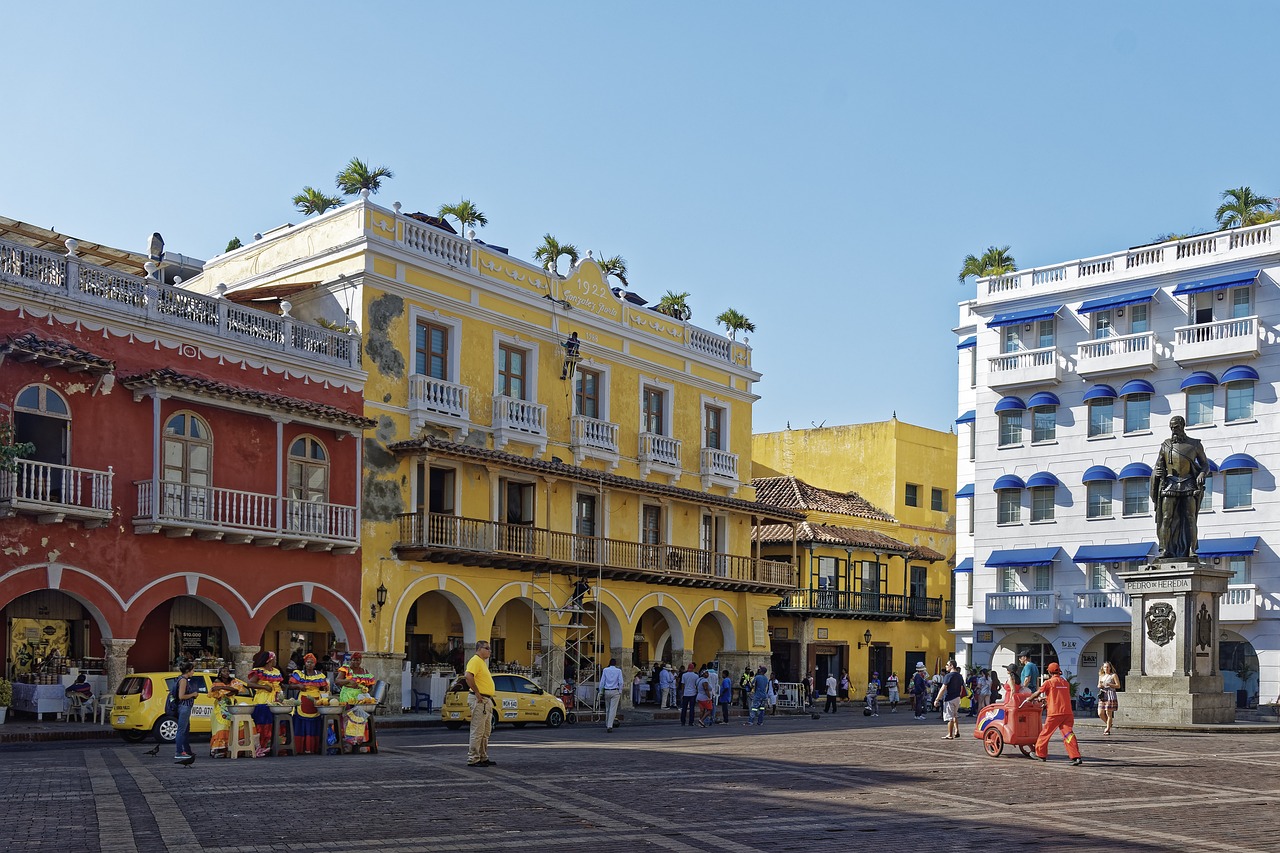Colombia Video
Navigating Local Taxes and Business Regulations in Colombia
Colombia is a vibrant country with a growing economy and a welcoming environment for businesses. However, like any other country, Colombia has its own set of local taxes and business regulations that entrepreneurs and investors need to navigate. Understanding these regulations is crucial to ensuring compliance and avoiding any legal issues. In this article, we will explore the key aspects of navigating local taxes and business regulations in Colombia.
Business Registration and Licensing
Starting a business in Colombia requires proper registration and licensing. The first step is to choose the appropriate legal structure for your business, such as a sole proprietorship, partnership, or corporation. Once you have decided on the legal structure, you need to register your business with the Chamber of Commerce in the city where your business will operate. The registration process typically involves providing the necessary documents, such as identification, proof of address, and tax identification number.
- Identification: Provide a valid identification document, such as a passport or national identification card.
- Proof of Address: Submit a document that proves your business address, such as a utility bill or lease agreement.
- Tax Identification Number (NIT): Obtain a tax identification number from the National Tax Authority (DIAN) by registering your business.
Once your business is registered, you may need to obtain additional licenses or permits depending on the nature of your business activities. For example, if you plan to open a restaurant, you will need to obtain a food service license from the local health department. It is essential to research and comply with all relevant licensing requirements to avoid penalties and operational disruptions.
Tax Obligations
Colombia has a comprehensive tax system that includes various taxes applicable to businesses. Understanding your tax obligations is crucial for maintaining compliance and avoiding any legal issues. The key taxes to consider are:
- Corporate Income Tax: Colombian companies are subject to corporate income tax, which is levied on their worldwide income. The current corporate income tax rate is 33%, but certain industries may have different rates or incentives.
- Value Added Tax (VAT): Most goods and services in Colombia are subject to VAT, which is currently set at a standard rate of 19%. It is essential for businesses to register for VAT and comply with the reporting and payment requirements.
- Payroll Taxes: If you have employees, you are responsible for deducting and remitting their social security contributions and income tax withholdings. The rates vary depending on the employee’s salary and other factors.
- Local Taxes: In addition to national taxes, businesses may be subject to local taxes imposed by the municipalities where they operate. These taxes can include property taxes, business license taxes, and industry-specific taxes.
It is advisable to consult with a qualified tax professional or accountant to ensure proper compliance with tax regulations and to take advantage of any available incentives or deductions.
Employment Regulations
When hiring employees in Colombia, businesses must comply with the country’s labor laws and regulations. These laws cover various aspects of employment, including minimum wage, working hours, vacation entitlements, and termination procedures. Key employment regulations in Colombia include:
- Minimum Wage: Colombia has a minimum wage that is adjusted annually. The rate varies depending on the region and the type of employment contract.
- Working Hours: The standard maximum workweek in Colombia is 48 hours, with a maximum of 12 hours per day. Overtime must be compensated at a higher rate.
- Vacation Entitlements: Employees are entitled to paid vacation leave based on their length of service. The minimum annual vacation entitlement is 15 consecutive days.
- Termination Procedures: Termination of employment must follow specific procedures outlined in the labor laws, including notice periods and severance pay requirements.
It is essential for businesses to familiarize themselves with these employment regulations to ensure fair treatment of employees and avoid any legal disputes.
Environmental Regulations
Colombia has implemented various environmental regulations to protect its natural resources and promote sustainable development. Businesses operating in Colombia must comply with these regulations to minimize their environmental impact. Key environmental regulations in Colombia include:
- Environmental Permits: Certain activities, such as mining or industrial operations, require environmental permits from the appropriate authorities. These permits ensure that the activities are conducted in an environmentally responsible manner.
- Waste Management: Businesses are required to implement proper waste management practices, including waste segregation, recycling, and disposal in accordance with applicable regulations.
- Energy Efficiency: Colombia encourages businesses to adopt energy-efficient practices by offering incentives and promoting energy-saving technologies.
Compliance with environmental regulations not only helps protect the environment but also enhances the reputation and credibility of businesses operating in Colombia.
Intellectual Property Rights
Protecting intellectual property rights is crucial for businesses operating in Colombia. The country has a robust legal framework for intellectual property protection, including trademarks, patents, copyrights, and industrial designs. To safeguard your intellectual property rights in Colombia, consider the following:
- Trademark Registration: Register your trademarks with the Colombian Trademark Office to establish legal protection and prevent others from using similar marks.
- Patent Registration: If you have an invention or a unique product, consider applying for a patent to prevent others from using, manufacturing, or selling your invention without permission.
- Copyright Registration: Although copyright protection is automatic, registering your works with the Colombian Copyright Office provides additional evidence of ownership and facilitates enforcement.
It is advisable to work with an intellectual property lawyer to navigate the registration process and enforce your rights if necessary.
Conclusion
Navigating local taxes and business regulations in Colombia is essential for entrepreneurs and investors looking to establish a successful business in the country. By understanding the registration and licensing requirements, tax obligations, employment regulations, environmental regulations, and intellectual property rights, businesses can ensure compliance, minimize risks, and thrive in the Colombian market.
Colombia Image 1:

Business Registration and Licensing
…
Tax Obligations
…
Employment Regulations
…
Environmental Regulations
…
Intellectual Property Rights
…
Colombia Image 2:

Conclusion
…
Colombia Image 3:

References
– Chamber of Commerce Colombia: www.camara.gov.co
– National Tax Authority (DIAN): www.dian.gov.co
– Colombian Ministry of Health: www.minsalud.gov.co
– Colombian Ministry of Labor: www.mintrabajo.gov.co
– Colombian Copyright Office: www.derechodeautor.gov.co
– Colombian Trademark Office: www.sic.gov.co


